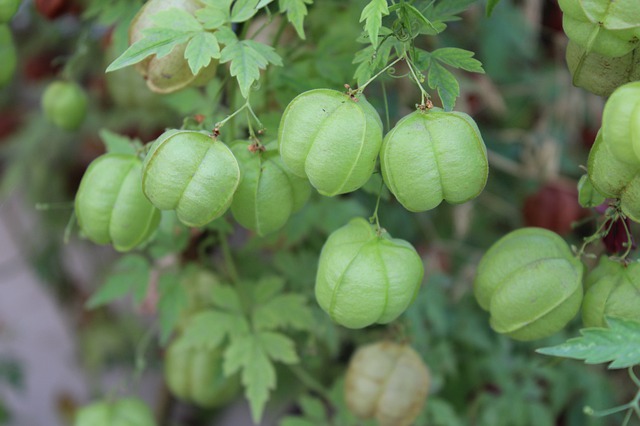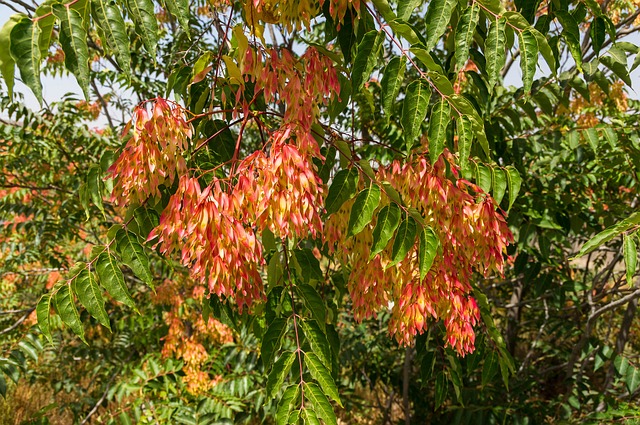Recently, the Property Care Association (PCA) reviewed the EU Invasive Alien Species Regulations to assess whether there were additional species that should be controlled under legislation. The outcome of this review? 13 new species of plant were added to the list of 'Species of Concern'.
Of these plants, 2 are considered particularly likely to threaten homes in the UK. These are the balloon vine and the tree of heaven. Let's take a look at these invasive species so that you can detect and eradicate them quickly!

Balloon Vine (Cardiospermum)
Belonging to the soapberry family, balloon vine is a climbing plant that can survive in tropical and sub-tropical conditions, so it's found all over the world. Like Japanese knotweed, this invasive species is capable of invading a garden area quickly, using its tendrils to climb and cling onto walls and surfaces.
The sweet heart-shaped domes of this plant meant that it was often cultivated as an ornamental plant. However, due to its invasive nature, it quickly established itself elsewhere. Balloon vine is already classified as a harmful weed in Australia and South Africa, and while there are no records of it appearing in the UK yet, it is highly possible that it will appear here in the coming years. Why? Because the balloon vine favours dry climates and soils and global warming is creating these ideal living conditions in pastures new!

Tree of Heaven (Ailanthus Altissima)
Found in mild conditions, the tree of heaven is a rapidly growing tree species that can reach heights of 49ft (15m) in as little as 15 years! The Tree of Heaven is native in China and Taiwan and has historically been used in herbal remedies and medicines. In the 1740s, the tree of heaven was brought to Europe where gardeners quickly learned to recognise it for its rapidly invasive nature and foul smell!
Like Japanese knotweed, this plant is capable of resprouting quickly when it's cut or damaged, this makes removing it completely incredibly difficult and time-consuming.
Currently, the tree of heaven has been contained to South-East England, but could easily spread across the whole of the country if it's not controlled properly. This devilish plant has earnt itself the ironic nickname "tree of hell".
Taking Action Against Invasive Species
There is an urgent need for coordinated EU efforts to prevent invasive species like the ones outlined above from spreading rapidly. Once an invasive species establishes itself in a country, it can easily move into bordering countries and beyond. One of the main targets of the 2020 Biodiversity Strategy is to improve the identification, prioritisation, control and eradication of invasive species before they have chance to establish in new countries (which explains the review and update of the Species of Concern list).
The Invasive Alien Species Order 2019 led to EU legislation being integrated into UK law on the 1st December 2019. This means we are legally required to help prevent, detect, eradicate and manage the species outlined in the EU Invasive Alien Species Regulations. You can see a full list of species here.
Here at Total Weed Control, we identify and control a range of invasive species including the infamous Japanese knotweed. If you suspect an invasive species has made its way into your garden, don't hesitate to get in touch for a FREE weed removal consultation.
Contact Us >
